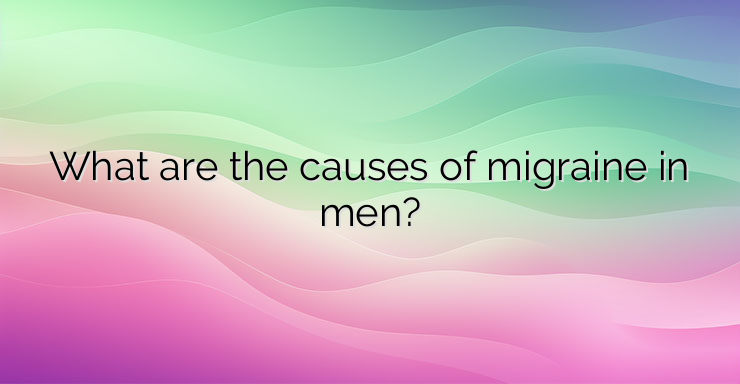Men are three times less likely to experience migraine than women. Research shows that even when they do have migraine attacks, men’s pain is usually less severe than women’s. There are many reasons why men suffer less from migraines, such as differences in genetics, migraine triggers, and estrogen levels in the body. The hormone estrogen is closely related to the development of migraines. There are three types of estrogens: Estradiol (the most common type); Estriol (the main estrogen hormone found during pregnancy); Estrone (the estrogen produced in the body after menopause) Estrogen is found in both male and female bodies. Some research shows that men who experience frequent migraines have higher levels of estradiol in their bodies than men who do not get migraine attacks. While the number of reported cases of migraine in men is low, the prevalence of migraine attacks in men may actually be higher. Studies show that men are less likely than women to see a doctor about their migraines, meaning that many men may experience more migraines than the statistics show. Genetic predisposition plays a crucial role in the development of migraine. Studies show that there is twice the risk of developing migraines if a person has a first-degree relative who has migraines. Many of the migraine triggers can affect men differently than women. One major trigger for migraines in men is exercise. However, physical activities affect each man differently depending on the level of physical fitness. For some men, vigorous exercise is a migraine trigger, while for others, even walking up the stairs is enough to trigger the condition. A 2021 study found that the most common migraine triggers in men are stress, bright light, and sleep deprivation. There are a variety of lifestyle factors that can trigger migraines in men, such as: High levels of stress; Lack of sleep; Dehydration; Insufficient nutrition; Low blood sugar or hypoglycemia; Certain foods and drinks known to cause migraines (such as chocolate, wine, nitrate foods, and aged cheese); Bright lights There are some symptoms that can accompany the headache, suggesting that the cause of the pain is more serious than a migraine. If you have a headache and any of these symptoms, you should seek immediate medical attention: Stiff neck; Fever; Double vision; Seizures; Confusion; Muscle weakness; Speech changes Bibliography: Hormone Health Network. Estrogen Scher AI, Wang SJ, Katsarava Z, et al. Epidemiology of migraine in men: Results from the Chronic Migraine Epidemiology and Outcomes (CaMEO) Study Bron C, Sutherland HG, Griffiths LR.Exploring the Hereditary Nature of Migraine Verywell Health. Why Are Men Less Likely to Get Migraines?


Leave a Reply